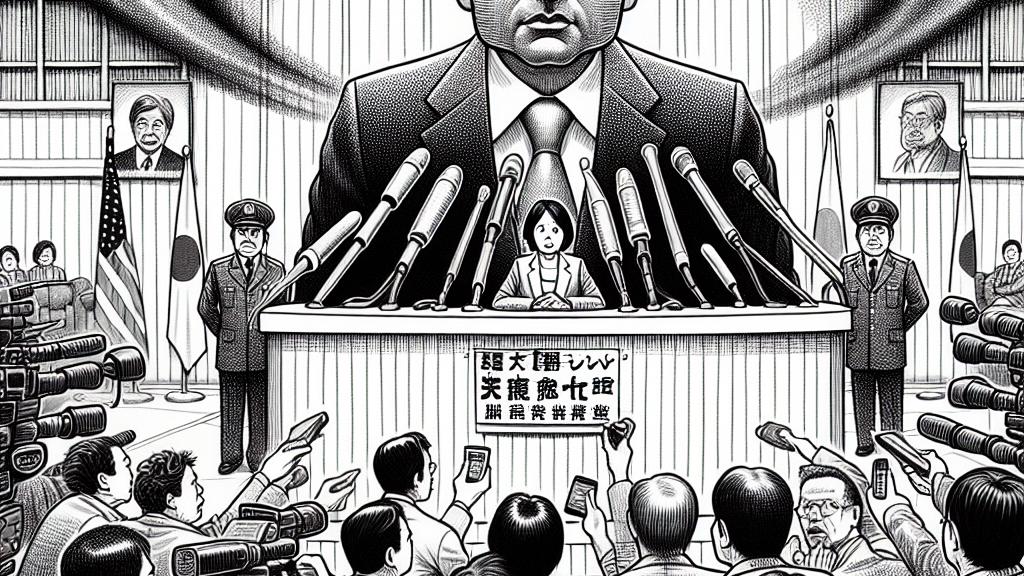Investigation into Political Actions by Hyogo Prefectural Assembly Members
Overview
- A political scandal shakes up Hyogo Prefecture's assembly.
- Serious ethical questions arise amid troubling accusations.
- Public faith in political leadership is at risk.

Emerging Political Controversy
In the dynamic world of Hyogo Prefecture, Japan, a scandal threatens to unravel the fabric of local politics. Kishiuchi Minoru, an assembly member from the Japan Restoration Party, recently admitted during a press conference that he was present at a tense meeting where dubious documents changed hands. He openly acknowledged his actions were "careless," a shocking revelation that raises eyebrows across the political spectrum. This disclosure comes as fresh allegations against former Governor Saito Motohiko continue to swirl, creating a cauldron of distrust and skepticism. Residents are left wondering, how many layers of secrets lie beneath the surface?
The Role of Document Leaks
The heart of the controversy revolves around a mysterious document that has been weaponized by Tachibana Takashi, the leader of the Party to Protect Citizens from NHK. He has leveraged its unverified contents to launch damaging claims, not only against Kishiuchi but also against the late Takeuchi Hidemasa. For example, Tachibana insinuated that Takeuchi spread false rumors, which has ignited outrage. Kishiuchi's statement that he did not directly hand over the document—despite being in attendance—only deepens the shadows of doubt hovering over this affair. Such incidents highlight how easily misinformation can permeate political discourse, creating chaos where truth should reign.
Impact on Public Trust
The repercussions from this scandal extend far beyond political circles, threatening the very essence of public trust—the cornerstone of any democracy. When elected officials display questionable behavior, as seen here, citizens begin to question the integrity and intentions of their representatives. This erosion of confidence could very well lead to a powerful call for reform, as Hyogo residents demand stricter accountability measures and ethical standards within the assembly. Moreover, the broader conversation about transparency and governance emerges, compelling the community to reflect on what it truly means to have trustworthy leaders. This scandal serves not merely as an isolated incident but as a critical flashpoint for examining the future of political ethics in Hyogo.

Loading...